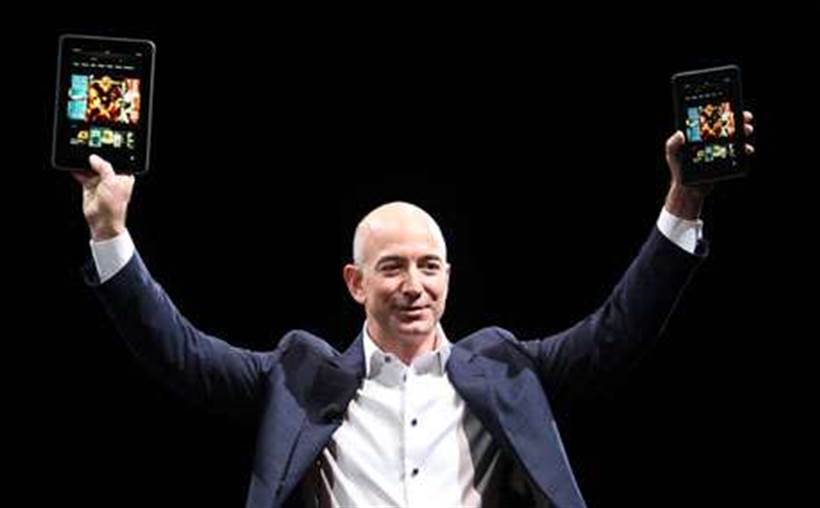Amazon founder and CEO Jeff Bezos has put a new spin on Silicon Valley’s “embrace failure” mantra, noting that failures occur naturally in the pursuit of pulling off big bets.
In his 2015 letter to shareholders, Bezos said he believed Amazon was “the best in place in the world to fail”, primarily because the workplace culture accepted it was a necessary risk playing for high stakes payoffs.
“Failure and invention are inseparable twins,” Bezos said.
“To invent you have to experiment, and if you know in advance that it’s going to work, it’s not an experiment.
“Most large organisations embrace the idea of invention, but are not willing to suffer the string of failed experiments necessary to get there.”
Bezos said that outsized returns often came “from betting against conventional wisdom”. The problem with that, of course, is that conventional wisdom is usually right – and therefore lower risk (and with higher rates of success).
“Given a ten percent chance of a 100 times payoff, you should take that bet every time,” he advised.
“But you’re still going to be wrong nine times out of ten.”
Bezos used a baseball analogy of swinging for the fences – “you’re going to strike out a lot, but you’re also going to hit some home runs.”
“The difference between baseball and business, however, is that baseball has a truncated outcome distribution. When you swing, no matter how well you connect with the ball, the most runs you can get is four,” he said.
“In business, every once in a while, when you step up to the plate, you can score 1000 runs.
“This long-tailed distribution of returns is why it’s important to be bold.
“Big winners pay for so many experiments.”
Bezos saw Amazon and Amazon Web Services as bold bets that helped fund other moonshot projects.
Amazon, he said, in 2015 became “the fastest company ever to reach $100 billion in annual sales.”
“Also this year, Amazon Web Services is reaching $10 billion in annual sales … doing so at a pace even faster than Amazon achieved that milestone,” Bezos said.
While Bezos noted the importance of a culture where big bets were OK, he also pointed to the difficulties in getting culture right.
”A word about corporate cultures: for better or for worse, they are enduring, stable, hard to change,” he said.
“They can be a source of advantage or disadvantage. You can write down your corporate culture, but when you do so, you’re discovering it, uncovering it – not creating it.
“It is created slowly over time by the people and by events – by the stories of past success and failure that become a deep part of the company lore.”
Cultural stability occurred largely as a result of self-selection, Bezos said.
“Someone energised by competitive zeal may select and be happy in one culture, while someone who loves to pioneer and invent may choose another,” he said.
“The world, thankfully, is full of many high-performing, highly distinctive corporate cultures.
“We never claim that our approach is the right one – just that it’s ours – and over the last two decades, we’ve collected a large group of like-minded people.”









